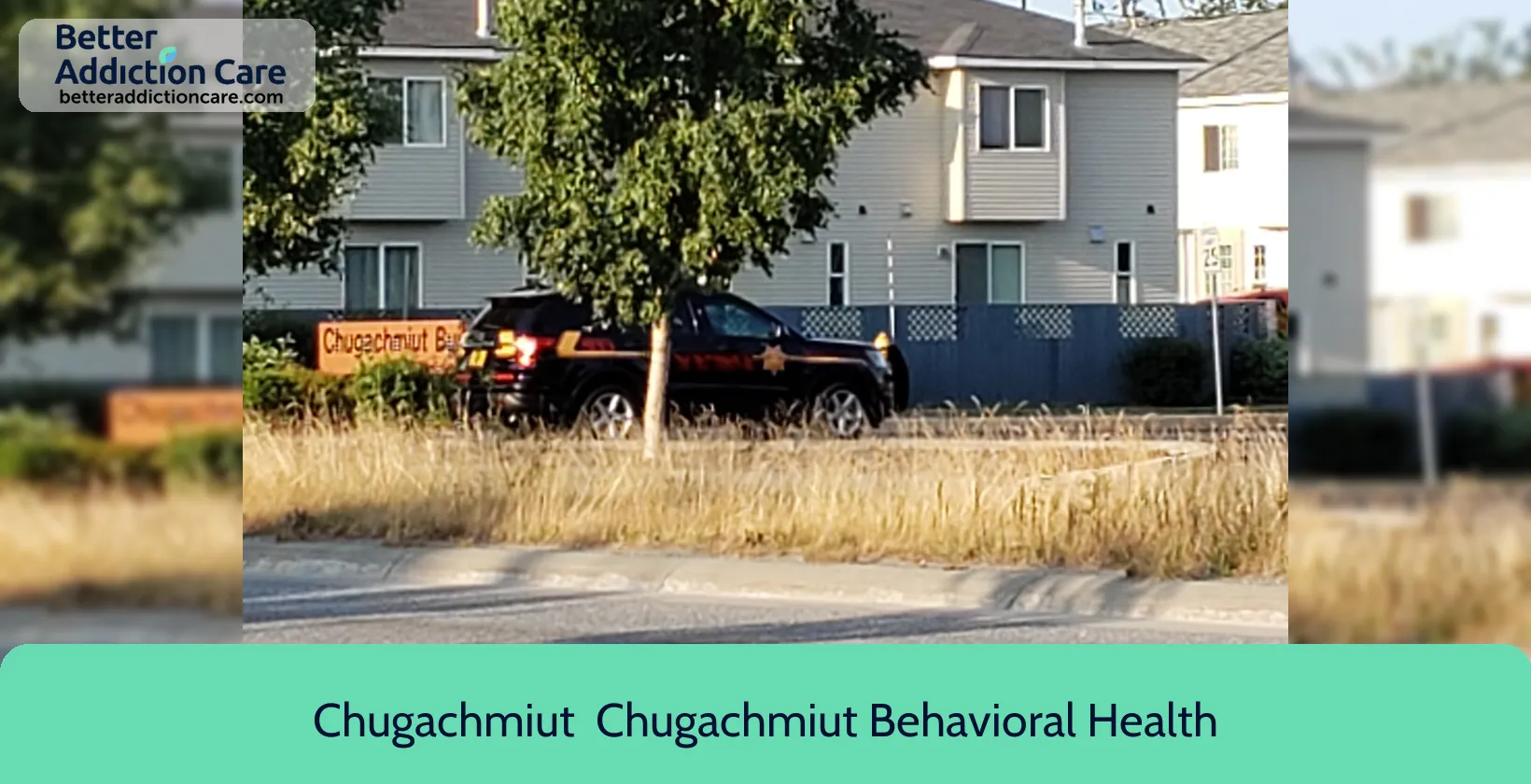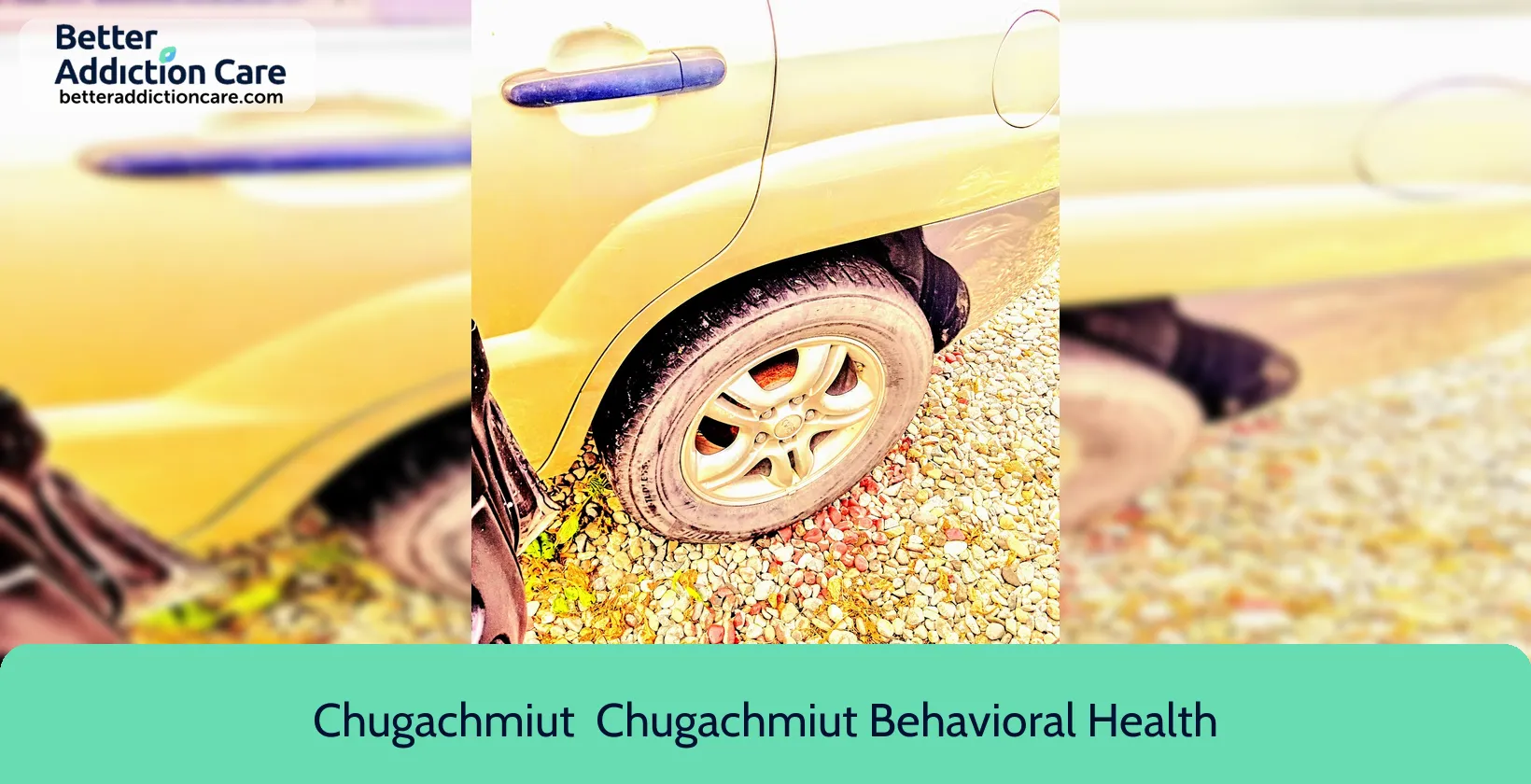Chugachmiut - Chugachmiut Behavioral Health Dept
Overview
Chugachmiut - Chugachmiut Behavioral Health Dept is a substance abuse treatment center for people seeking treatment near Anchorage County. As part of their treatment modalities for recovery, Chugachmiut - Chugachmiut Behavioral Health Dept provides individual psychotherapy, couples/family therapy, and cognitive behavioral therapy during treatment. Chugachmiut - Chugachmiut Behavioral Health Dept is located in Anchorage, Alaska, accepting cash or self-payment for treatment.
Chugachmiut - Chugachmiut Behavioral Health Dept at a Glance
Payment Options
- Cash or self-payment
- Medicaid
- Private health insurance
- Federal military insurance (e.g., TRICARE)
- Federal, or any government funding for substance use treatment programs
Assessments
- Screening for tobacco use
- Comprehensive substance use assessment
- Interim services for clients
- Outreach to persons in the community
- Screening for mental disorders
Age Groups
- Adolescents
- Young adults
- Children/adolescents
- Adults
- Seniors
Ancillary Services
- Case management service
- Court-ordered outpatient treatment
- Education services
- Family psychoeducation
- Integrated primary care services
Highlights About Chugachmiut - Chugachmiut Behavioral Health Dept
7.46/10
With an overall rating of 7.46/10, this facility has following balanced range of services. Alcohol Rehabilitation: 8.00/10, Drug Rehab and Detox: 6.62/10, Insurance and Payments: 6.80/10, Treatment Options: 8.42/10.-
Treatment Options 8.42
-
Alcohol Rehabilitation 8.00
-
Insurance and Payments 6.80
-
Drug Rehab and Detox 6.62
Accreditations
State mental health department:
State mental health department accreditation refers to the process of evaluating and certifying the quality and standards of a state's mental health department, ensuring that it provides high-quality services and meets specific criteria for mental health care. The accreditation process is performed by a third-party organization and helps to improve the overall care and treatment of individuals with mental health conditions.
State department of health:

State Licenses, issued by government agencies, authorize rehabilitation organizations to legally operate within designated geographical areas. The specific licenses required for operation are typically determined by both the nature of the rehabilitation program provided by the facility and its physical location.
Federally Qualified Health Center:
Federally Qualified Health Center (FQHC) accreditation is a process of evaluation and recognition by the federal government for community health centers that provide comprehensive and accessible healthcare services to underserved populations. FQHC accreditation is essential for centers to receive federal funding and to ensure that they meet standards for quality, patient-centered care.
Commission on Accreditation of Rehabilitation Facilities (CARF):

CARF accreditation is a prestigious recognition granted to rehabilitation and human service organizations. It signifies that an organization meets high-quality standards, having undergone a rigorous evaluation process. CARF accreditation boosts an organization's credibility and ensures top-notch care for individuals with disabilities, injuries, or healthcare needs.
Registration: 254632
Treatment At Chugachmiut - Chugachmiut Behavioral Health Dept
Treatment Conditions
- Alcoholism
- Mental health treatment
- Substance use treatment
- Co-occurring Disorders
Care Levels
- Outpatient
- Regular outpatient treatment
- Aftercare
Treatment Modalities
- Individual psychotherapy
- Couples/family therapy
- Cognitive behavioral therapy
- Dialectical behavior therapy
- Integrated Mental and Substance Use Disorder treatment
Ancillary Services
Additional Services
- Pharmacotherapies administered during treatment
- Discharge Planning
- Drug or alcohol urine screening
Special Programs
- Clients who have experienced trauma
Get Help Now
Common Questions About Chugachmiut - Chugachmiut Behavioral Health Dept
Contact Information
Other Facilities in Anchorage

6.83

6.71

6.74

7.40

6.68

7.42

6.59

7.39
DISCLAIMER: The facility name, logo and brand are the property and registered trademarks of Volunteers of America (VOA) Alaska, and are being used for identification and informational purposes only. Use of these names, logos and brands shall not imply endorsement. BetterAddictionCare.com is not affiliated with or sponsored by Volunteers of America (VOA) Alaska.


